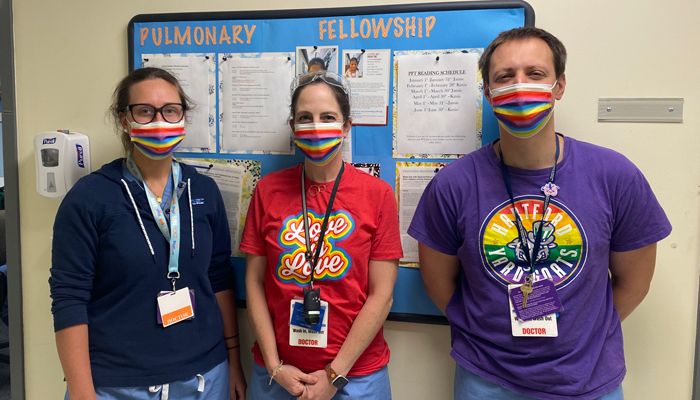Our primary goal is to train Pediatric Pulmonology fellows who are both academically and clinically competent while also achieving work/life balance. To accomplish this, the fellow will be exposed to both clinical and basic science research and to patients with a wide variety of pediatric respiratory diseases as well as ethnicities and socioeconomic status. The fellow is also instructed in effective teaching techniques, in the methods of design and execution of research, and in medical statistics and pulmonary physiology. The fellowship program is thus focused on preparing the fellow for a well-rounded career in pediatric pulmonology.
Specific Aims:
- Maintain a strong and broad research program within the Division and with collaborative partners.
- Expose fellow to opportunities across the breadth of the research experience, including quality improvement, clinical studies, population health and epidemiology, translational research, and basic science research.
- Tailor both didactic and non-didactic teaching to each individual fellow’s learning styles and needs.
- Continue to expand teaching skills and knowledge base of pulmonary faculty.
- Partner with colleagues in cardiology, allergy/immunology, critical care, and respiratory therapy to expose and train the fellow in extended pulmonary topics such as cardiopulmonary exercise testing, pulmonary hypertension, in-patient and out-patient ventilator management, and airway clearance techniques. In addition, during electives on allergy/immunology and sleep, fellows will work 1:1 with attending subspecialists in those areas to develop additional skill sets and explore other related diseases to pediatric pulmonary medicine.
- Provide individualized fellow supervision and teaching in a small program not dependent on fellows to provide all clinical care.
- Provide robust bronchoscopy experience incorporating a variety of modalities.
- Assist fellows with academic career planning and job searches.
- Allow fellows supervised autonomy early in their training, for both in- and out-patient management.
- Maintain personal contacts with division chiefs throughout region and country.
- Continue to expand our pulmonary division, with 40% of our new faculty hires recruited from our fellowship program.
